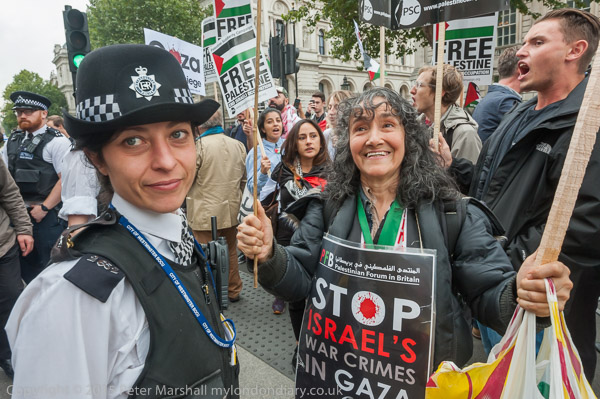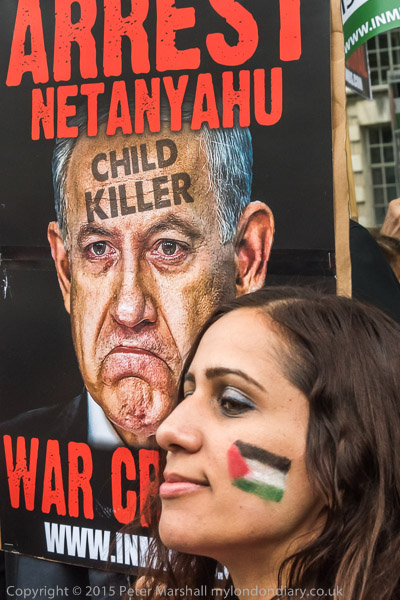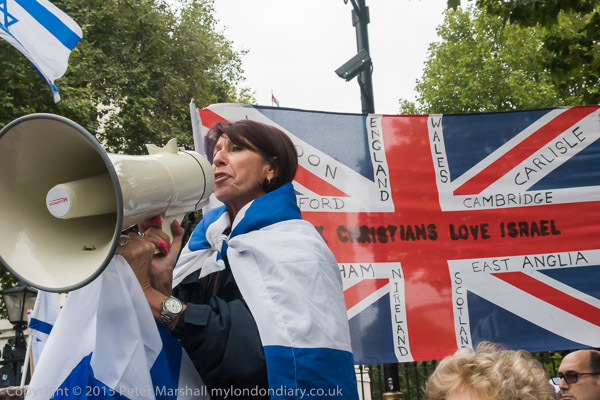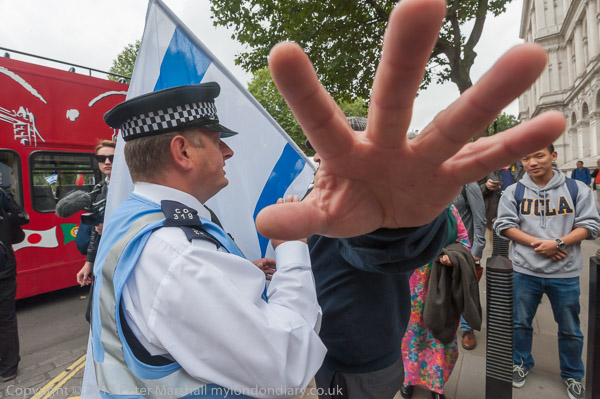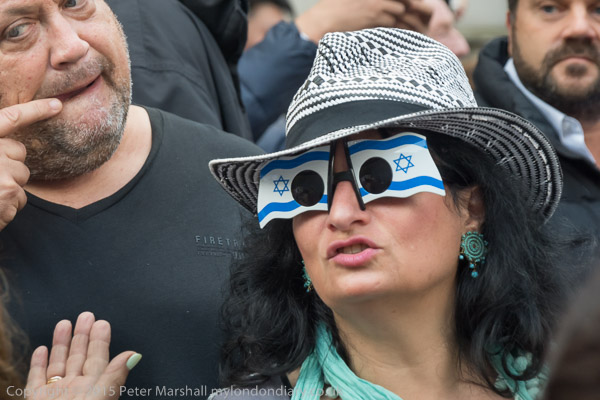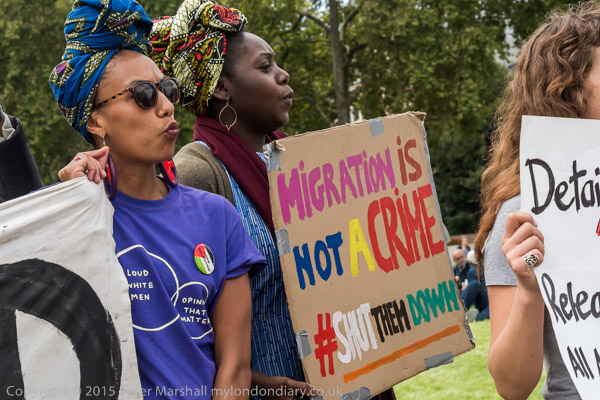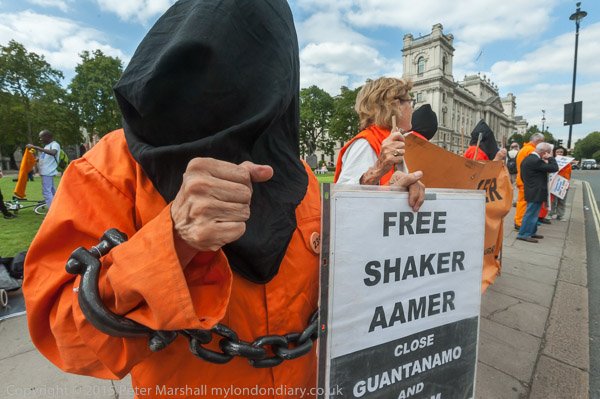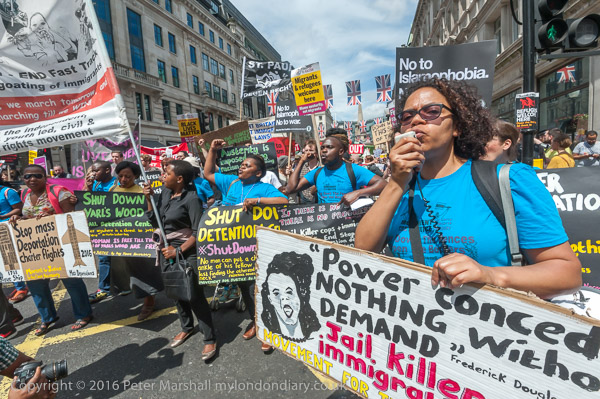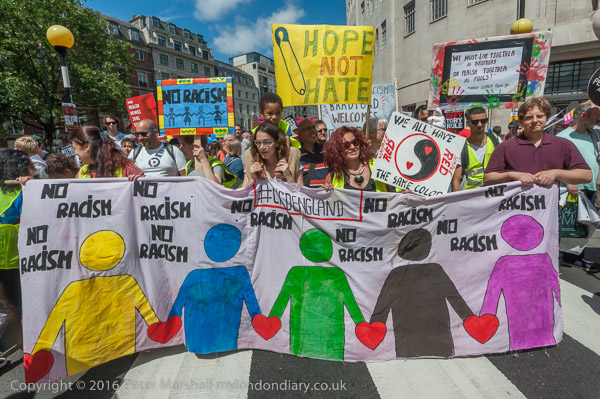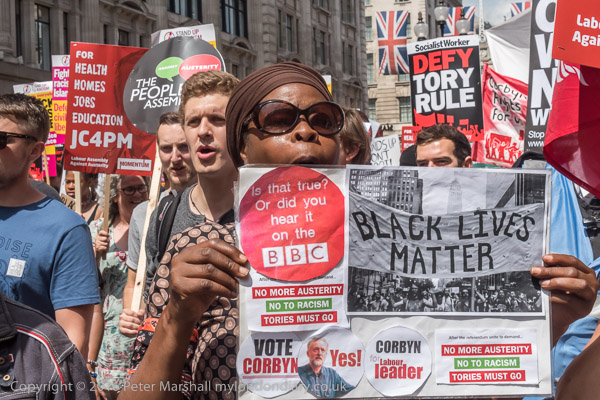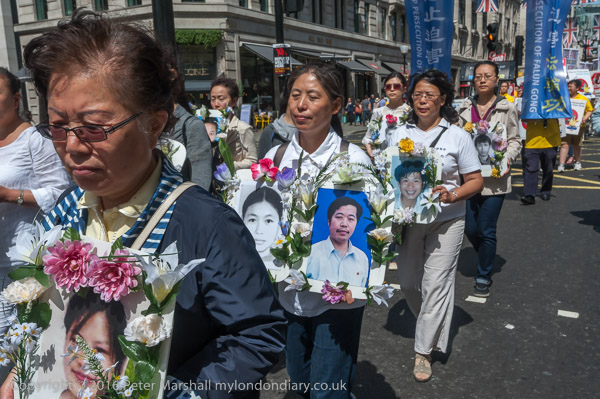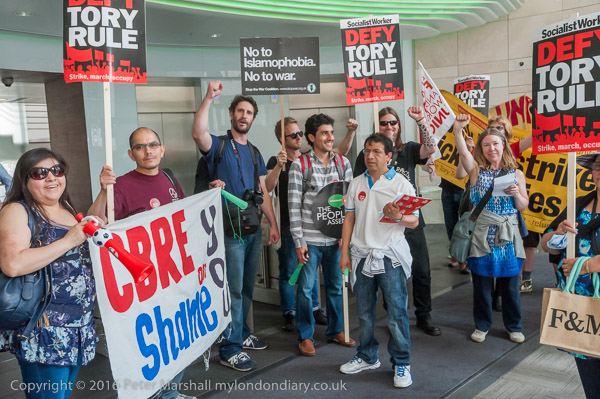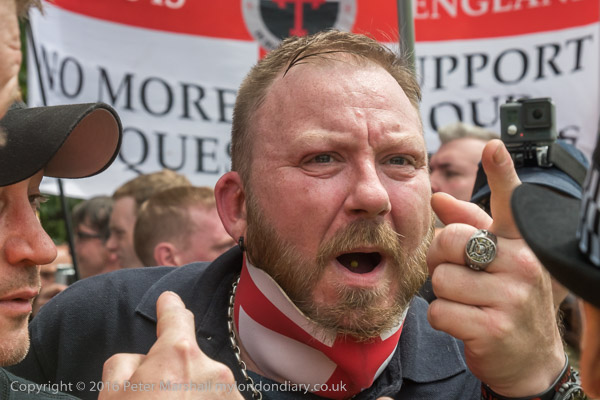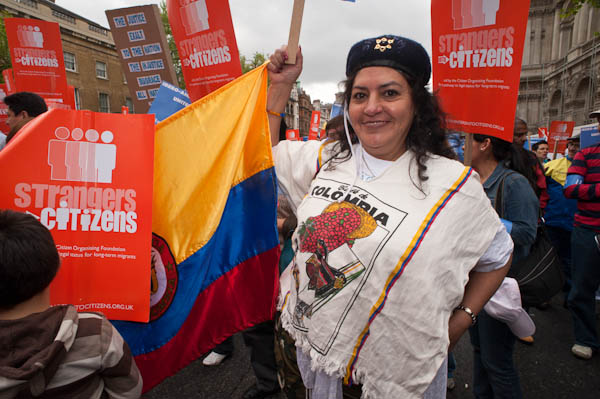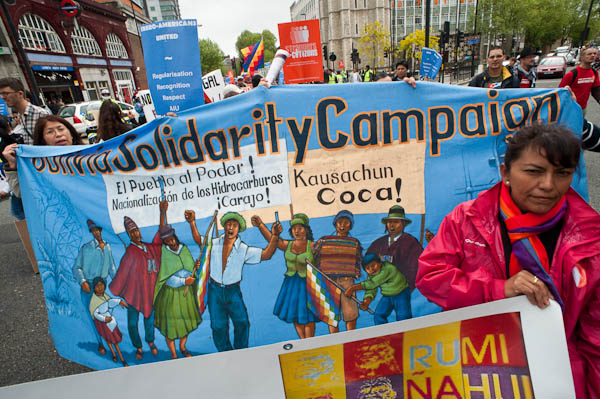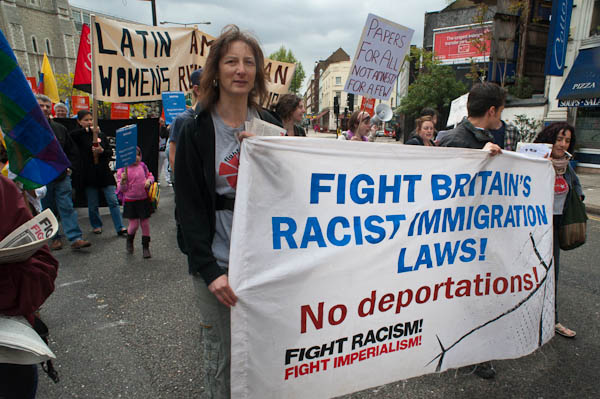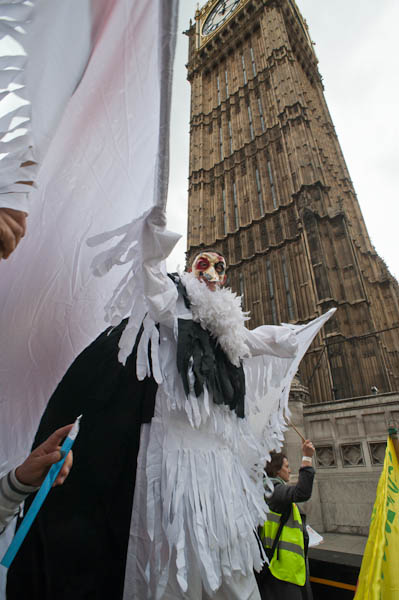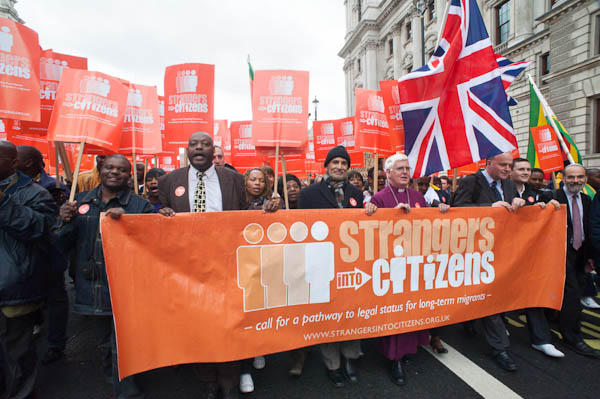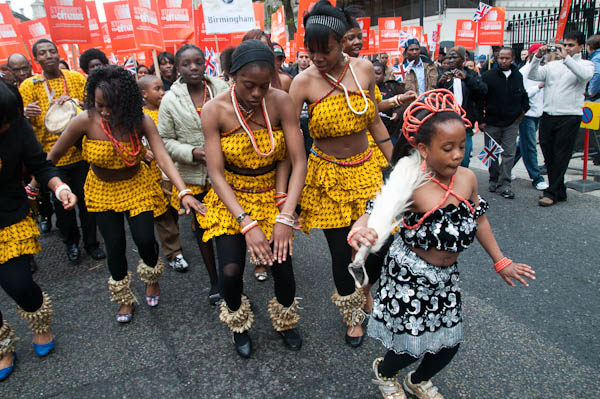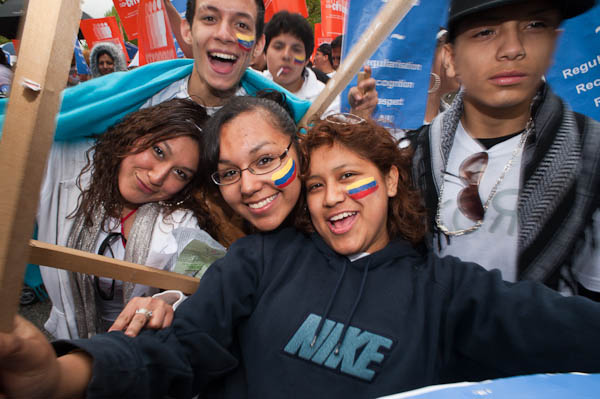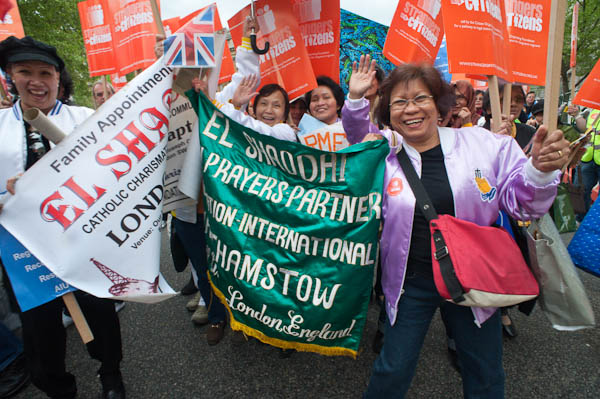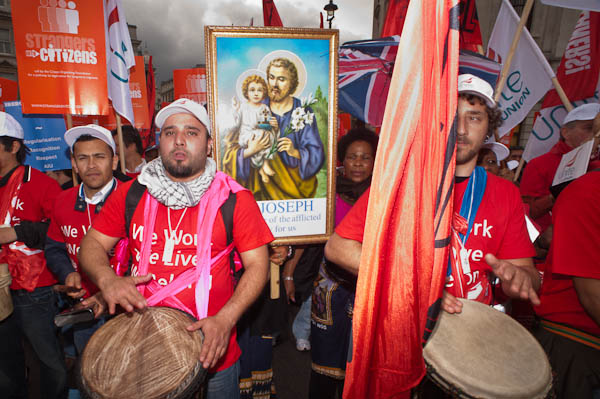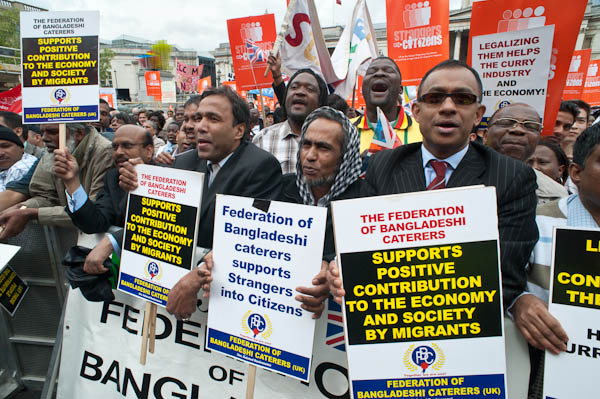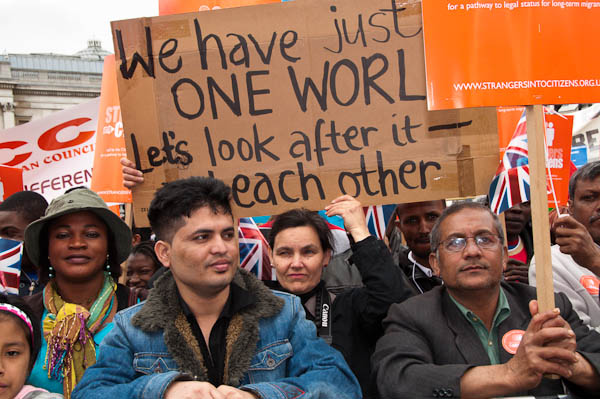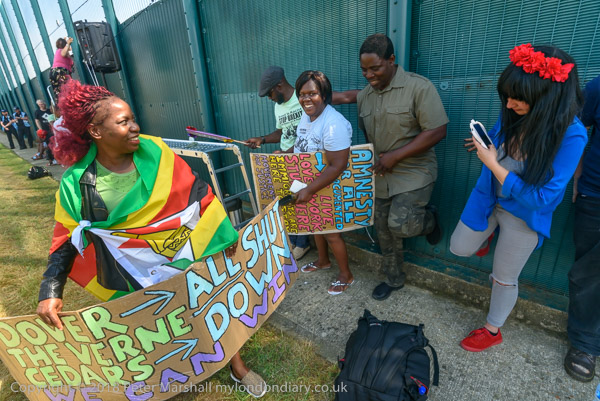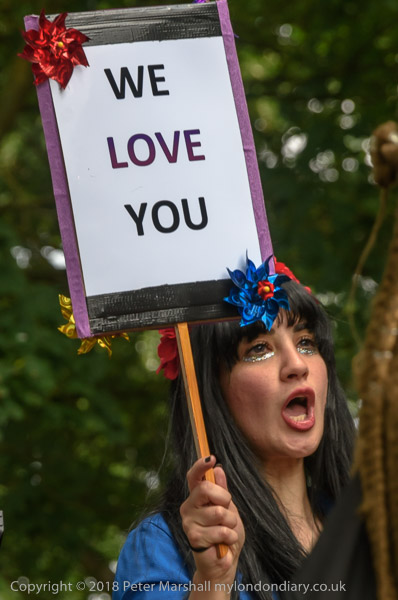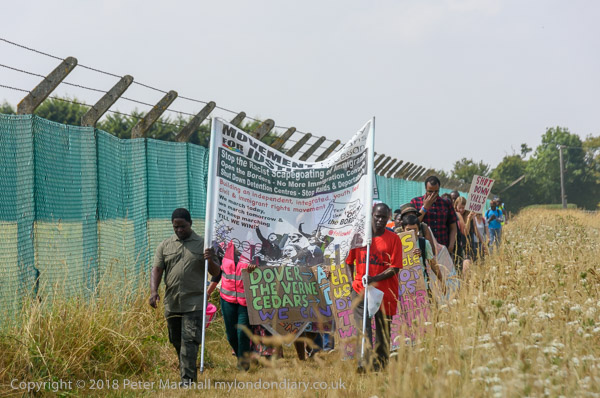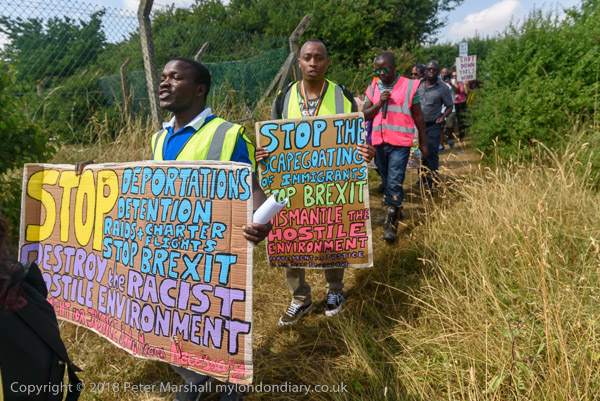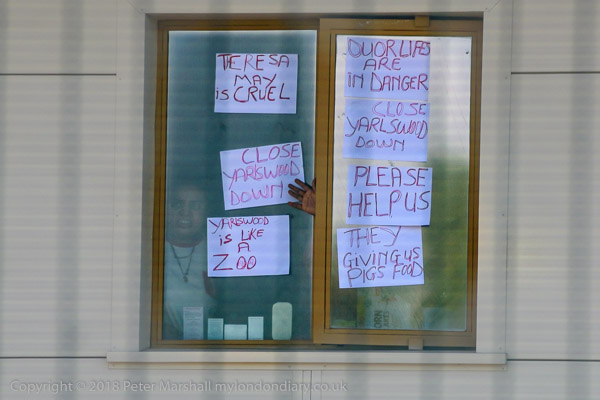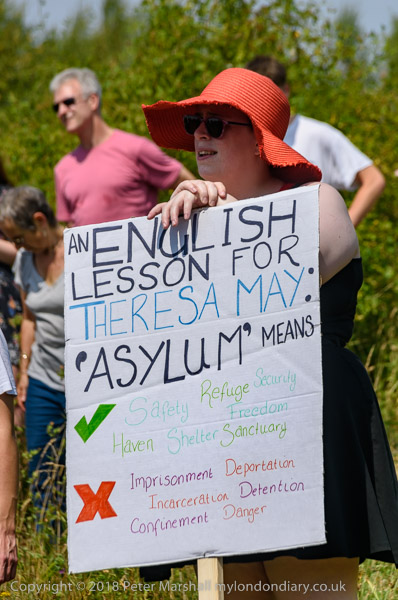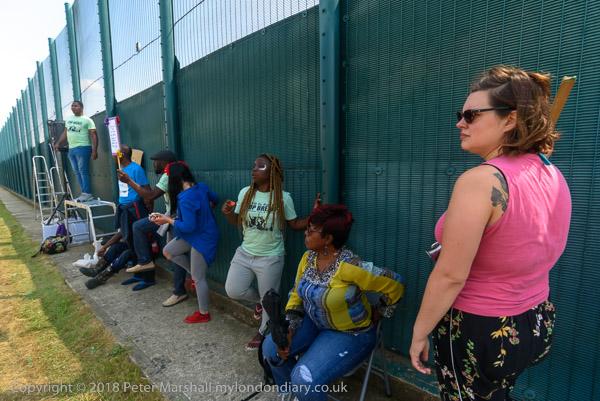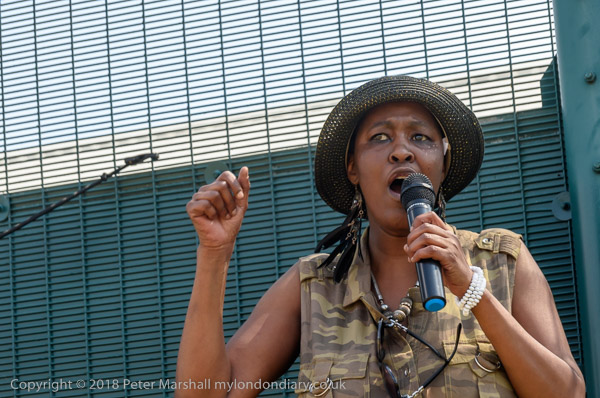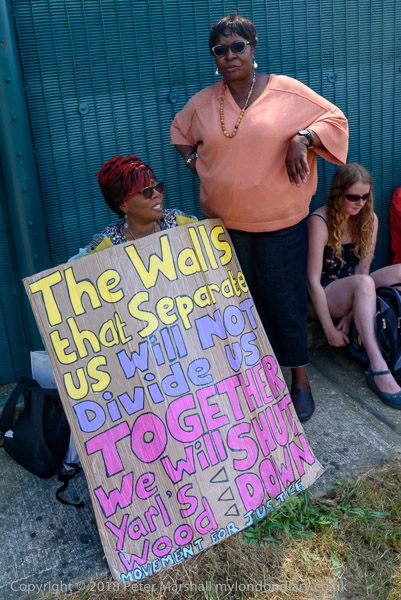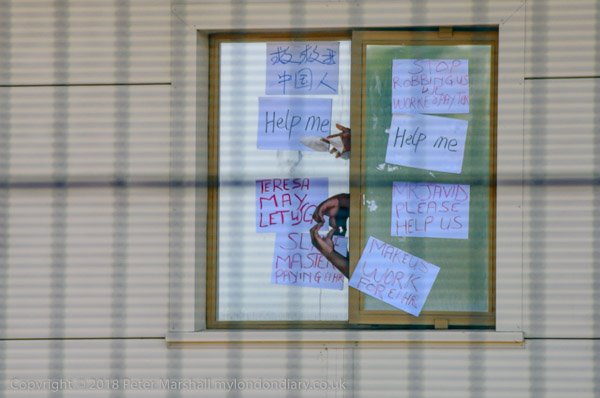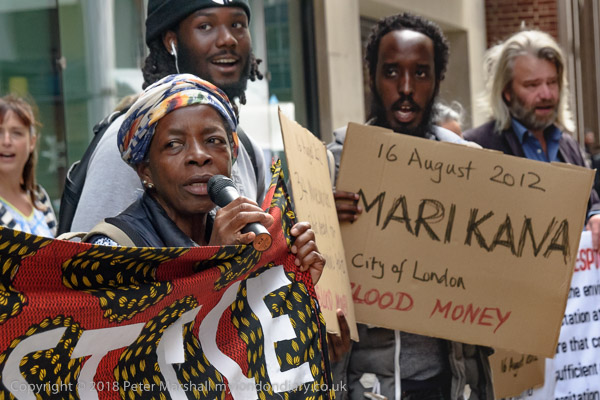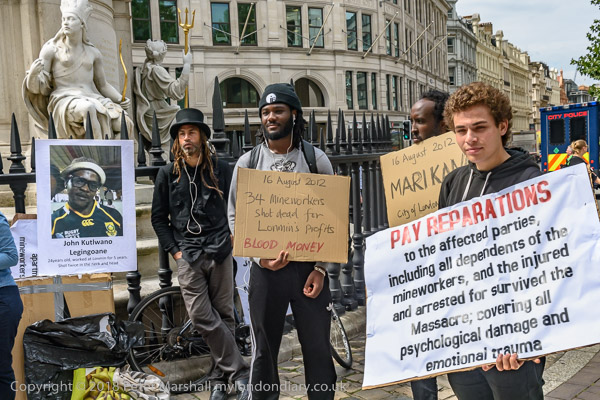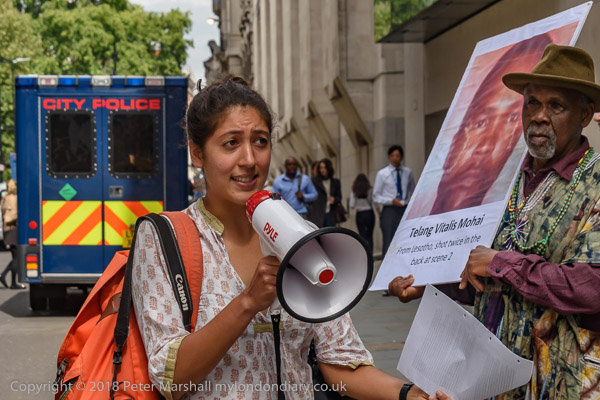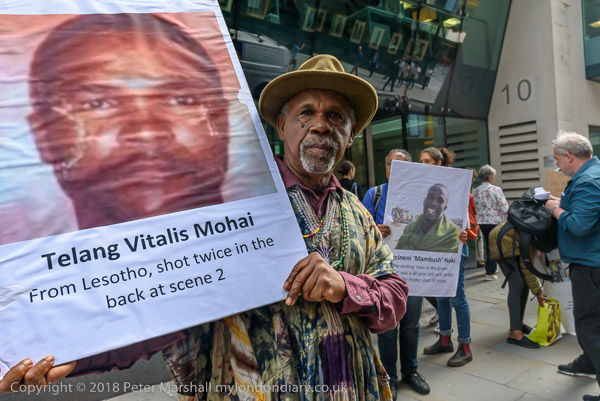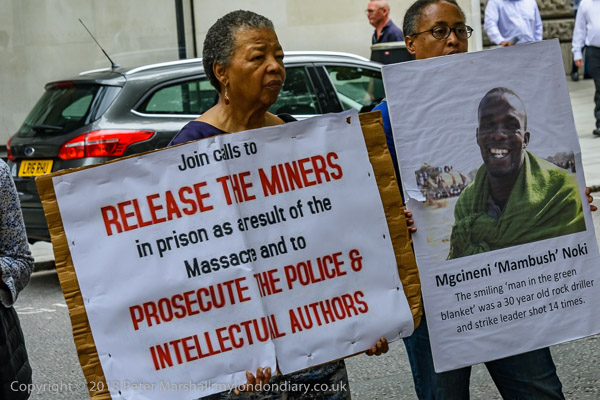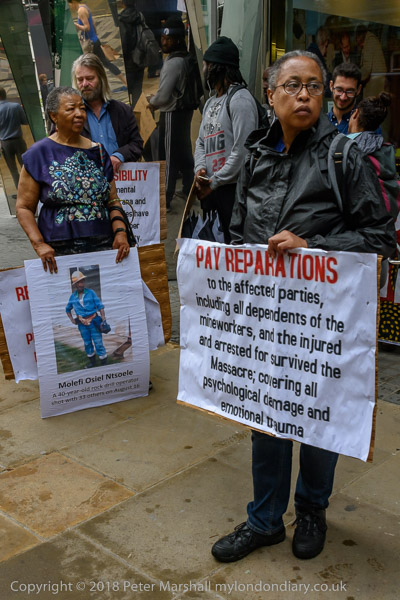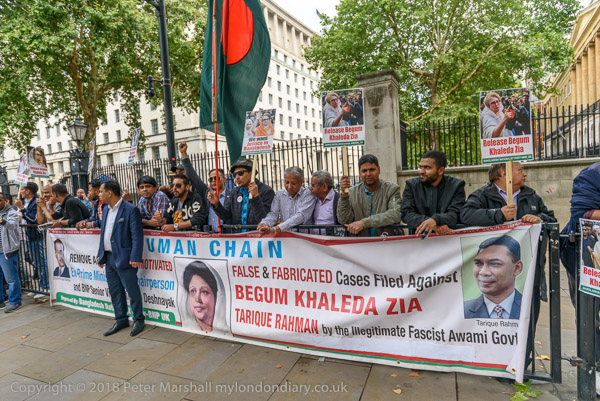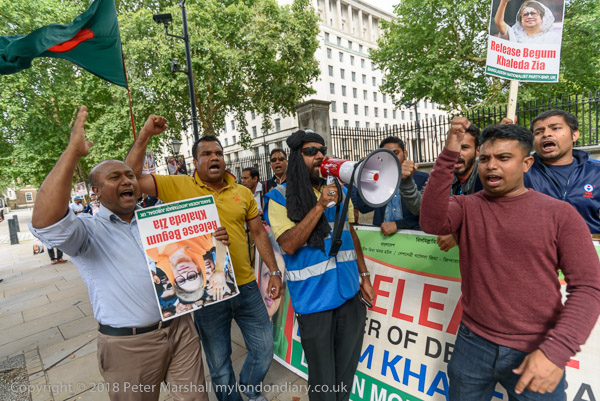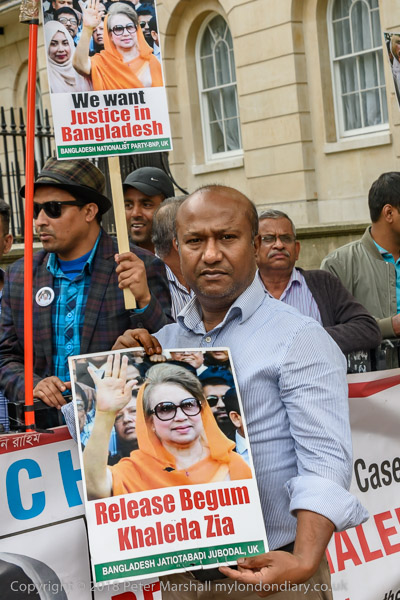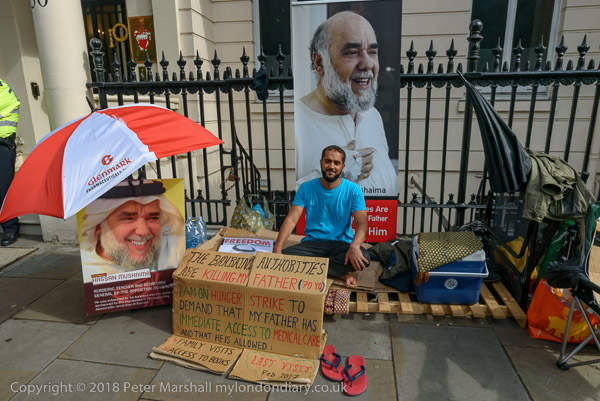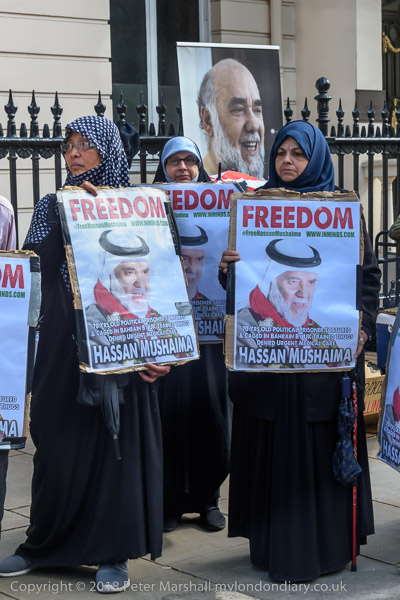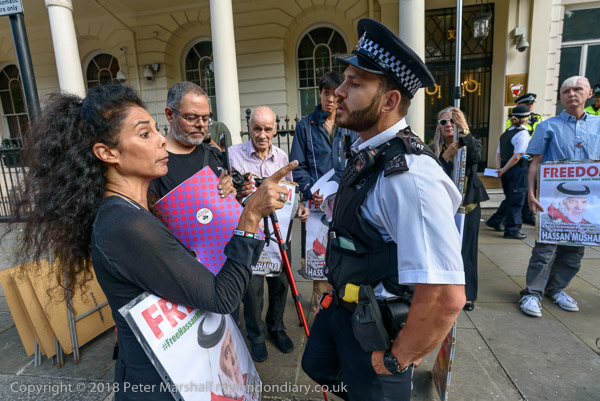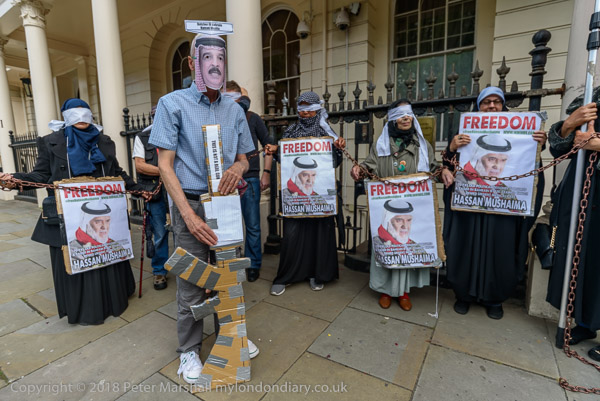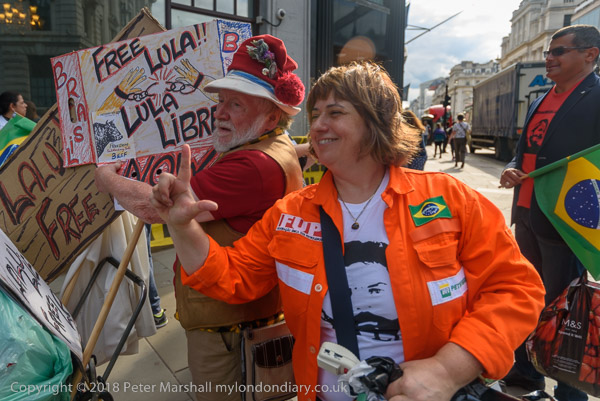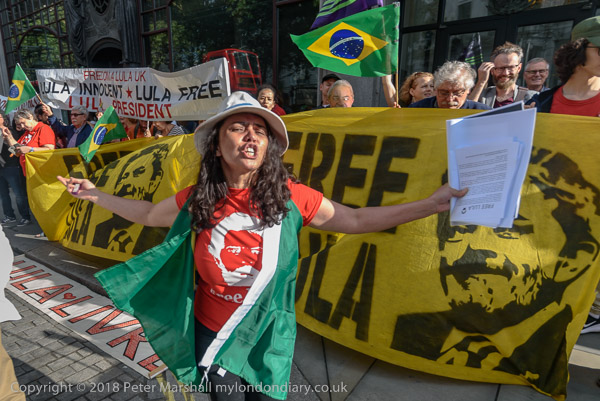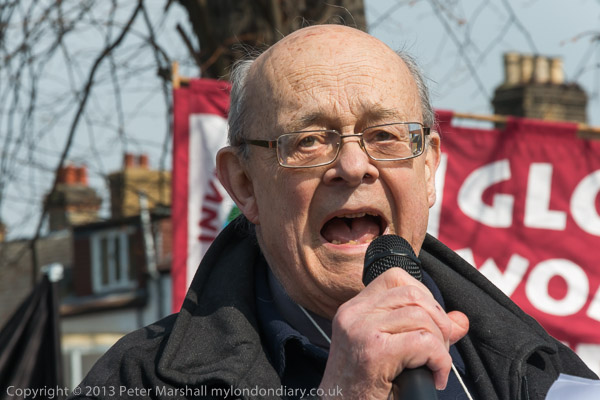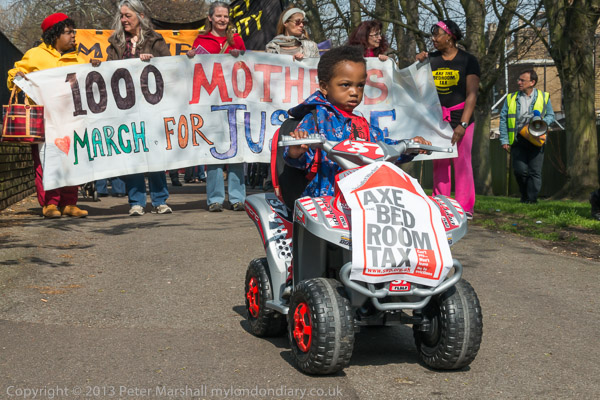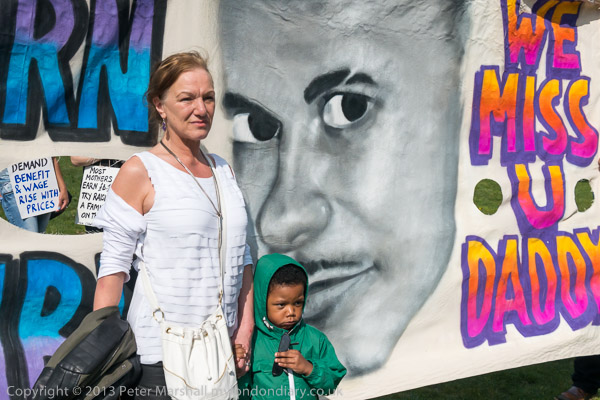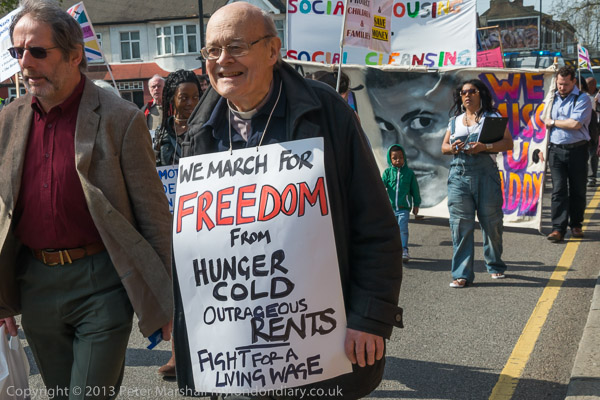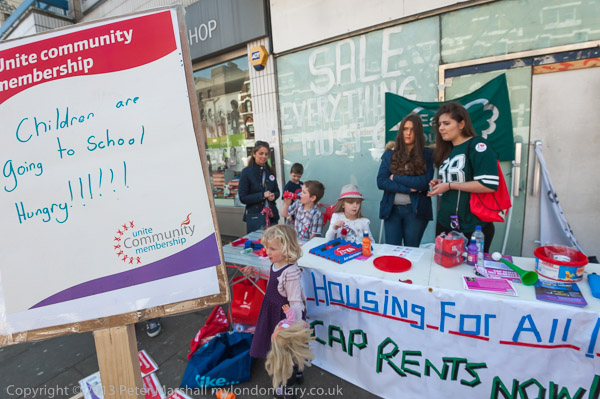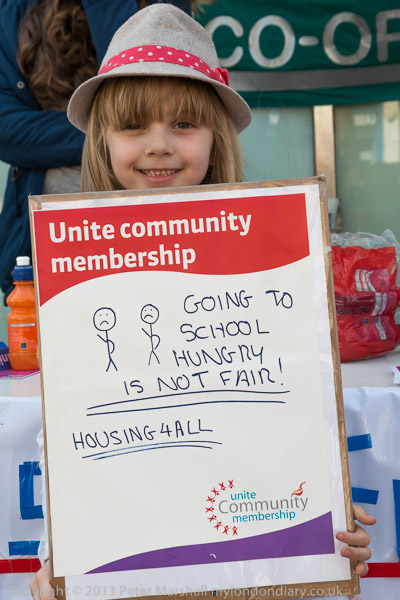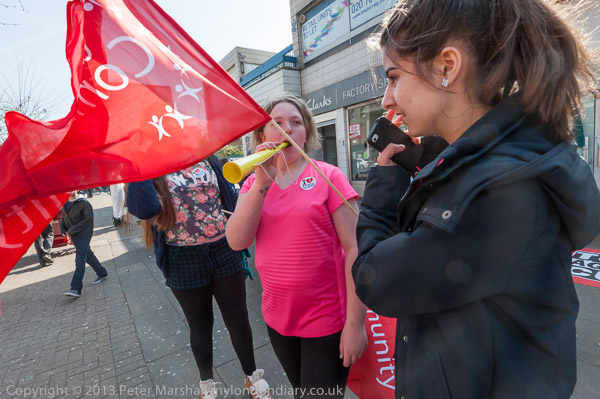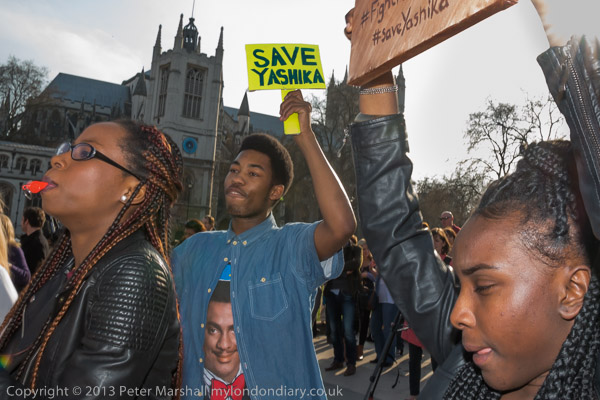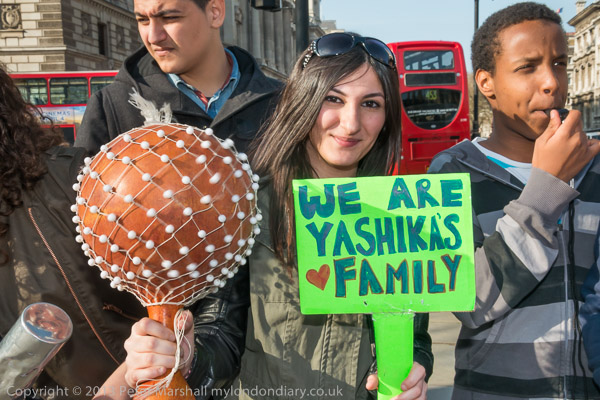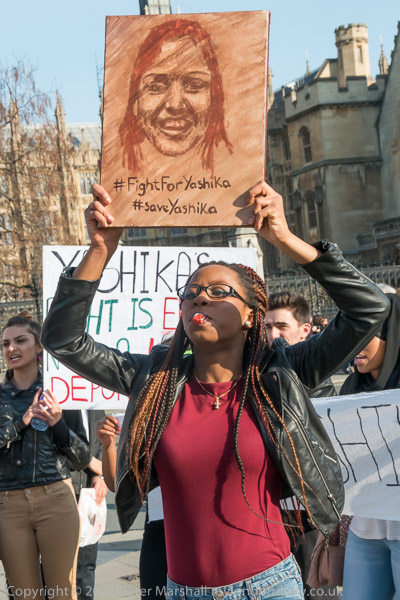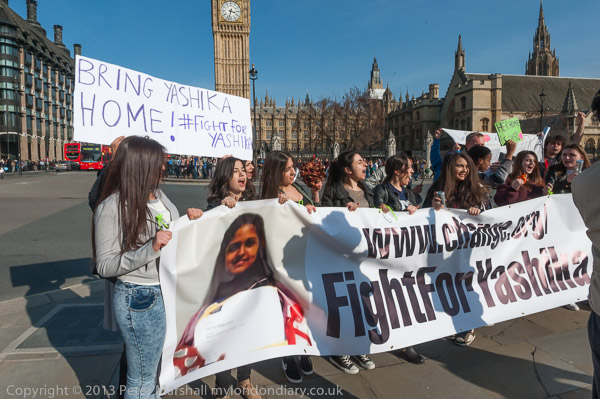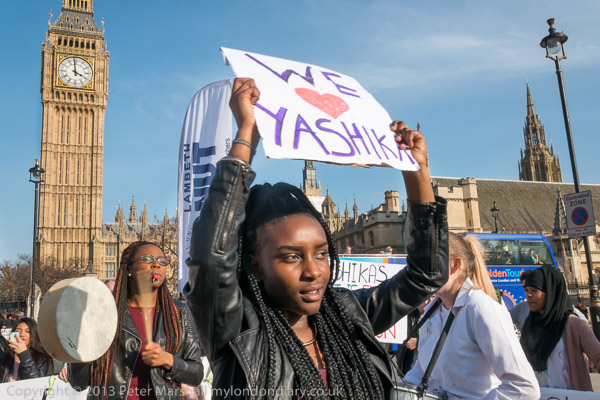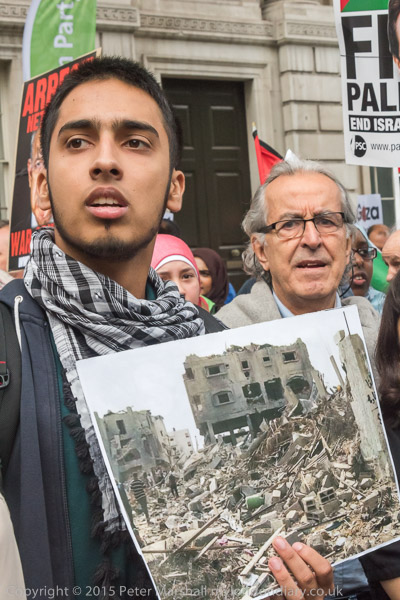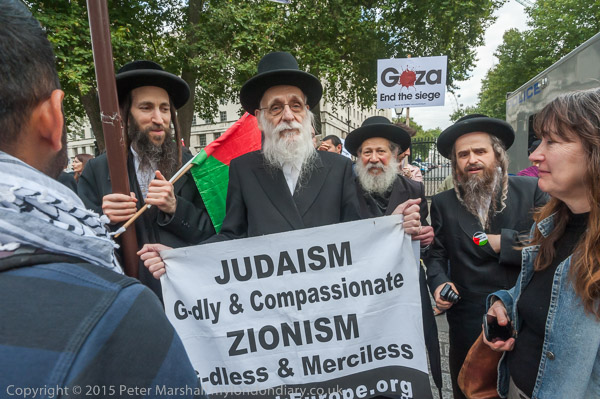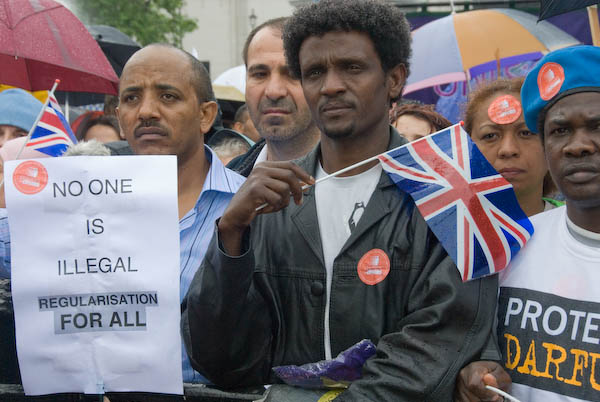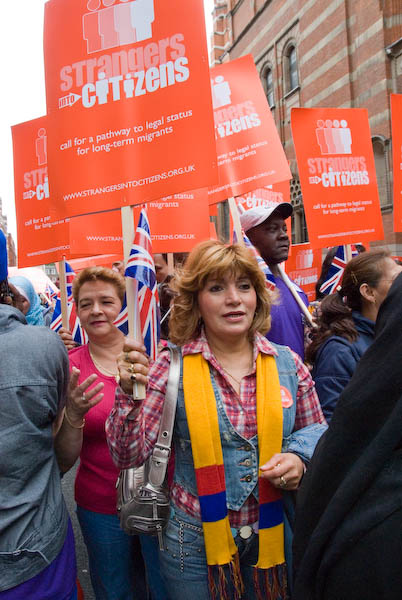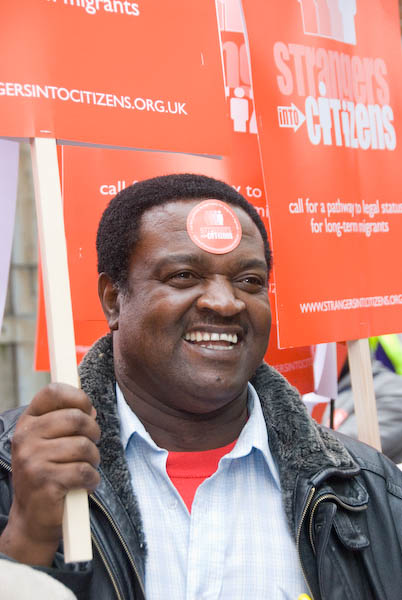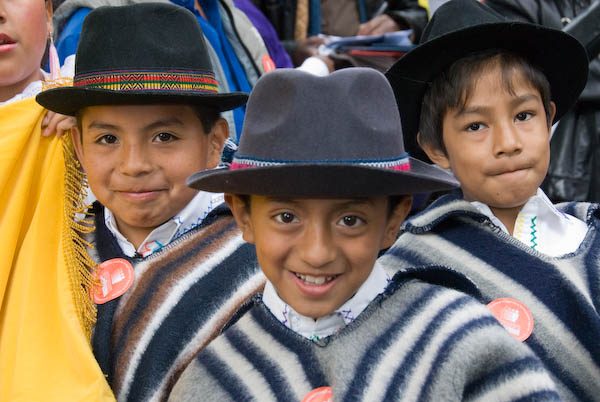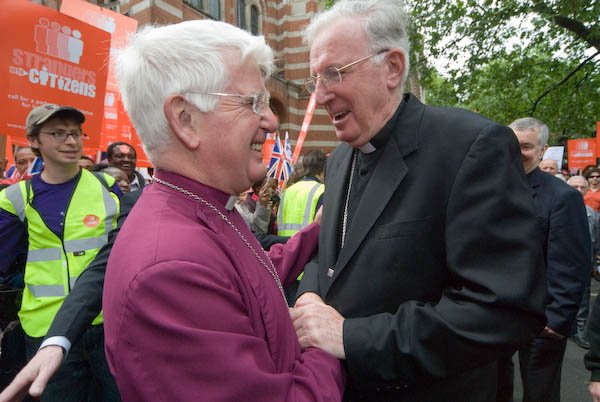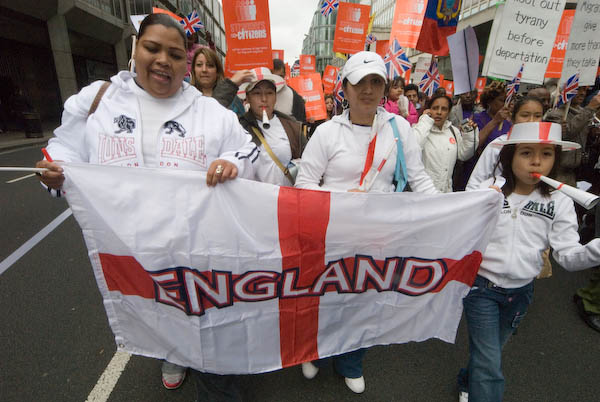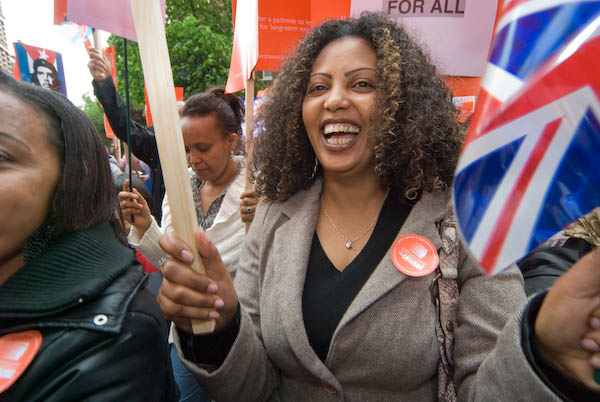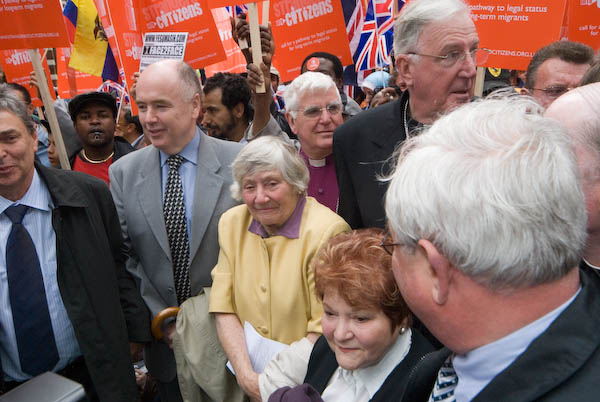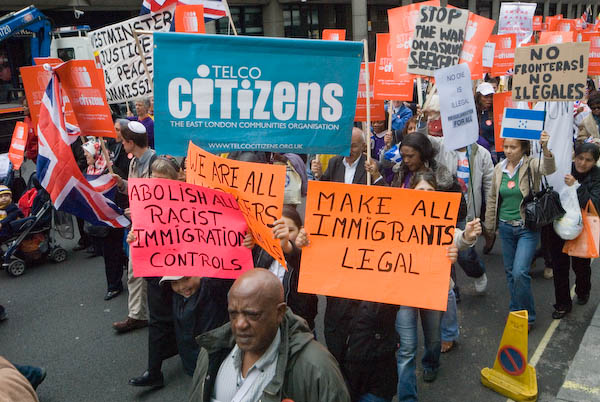Dolphin Massacre & Irish Famine: On Saturday 17th January 2015 I photographed two very different protests. More than a thousand had come to Cavendish Square in the late morning for a march to protest against the bloody annual dolphin slaughter in Taiji cove, Japan and the cruelty of keeping captured dolphins in visitor attractions. I left as they went through Oxford Circus marching to a rally in Trafalgar Square to cover a much smaller protest outside the Channel 4 building on Horseferry Road by people outraged at their plans to produce a comedy series based on the 1840s Irish famine.
Carnival March to End Taiji Dolphin Massacre
Cavendish Square
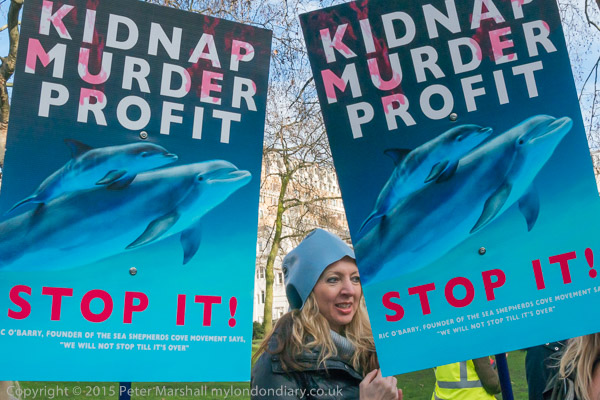
This had been planned as a carnival march and many of those taking part had obviously take considerable time and effort to dress up and make placards for the event. Some had brought model dolphins and many of the placards featured them.
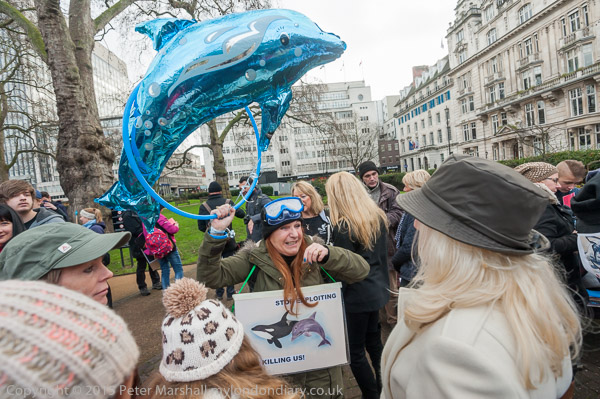
Obviously those taking part felt very strongly about the cruelty both of the annual slaughter in Taiji Cove, where the dolphins are trapped in the shallow water and killed, their blood turning the sea red, and of the cruelty of keeping captured dolphins in visitor attractions where they have little space to swim and cannot enjoy any natural life.
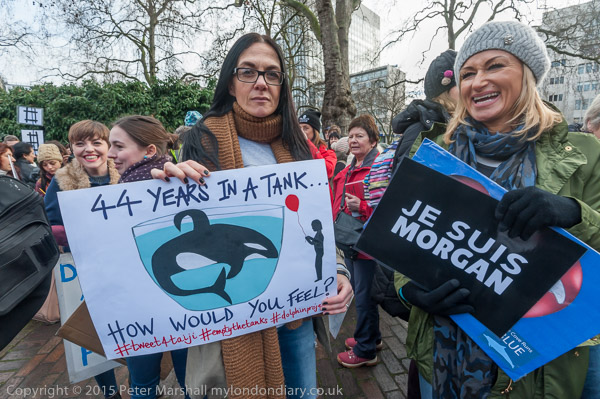
Having seen the films of the killing I’m also very much opposed to it, and I’ve never liked the caging of animals for entertainment. But when photographing events like this I do often think how good it would be if these people would also put the same kind of effort into protesting over the wars and genocides that are killing millions of our own species.

But the protesters enthusiasm for the cause and the effort they put into visuals do make protests such as this easy and rewarding to photograph – and very different from more political protests which are often rather more soberly dressed and dominated by mass-produced placards.
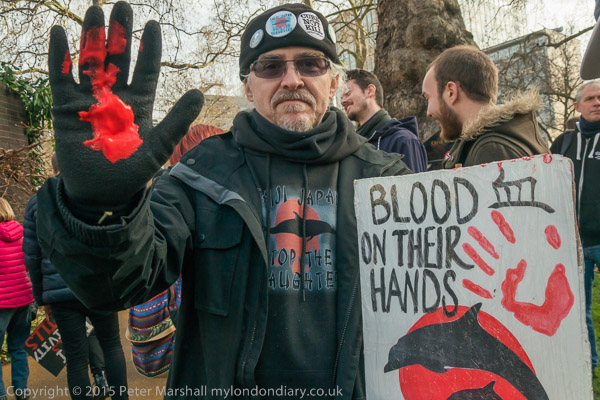
Another difference is the much greater proportion of women taking part than in most protests, though of course women play a very important part in many of the events I photograph and in my pictures.
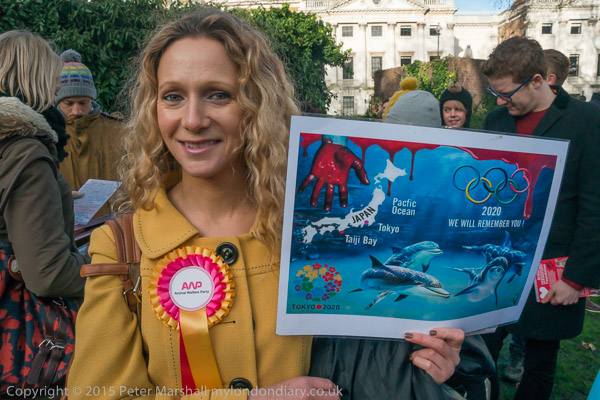
I was surprised when the march set off from the square that they walked on the pavements rather than taking to the road.
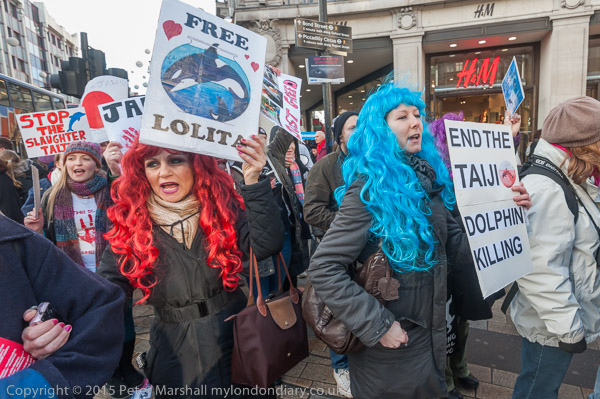
A march this size doesn’t really fit on the pavements of the West End which are crowded with shoppers, and it made photographing the actual march more difficult, fragmented by tourists and often slowly wandering shoppers. I found myself continually bumping into people and spent more time apologising than taking pictures as well as finding it very difficult to get a clear view.
More pictures at Carnival March to End Taiji Dolphin Massacre.
Irish Famine is no laughing matter
Channel 4, Horseferry Rd
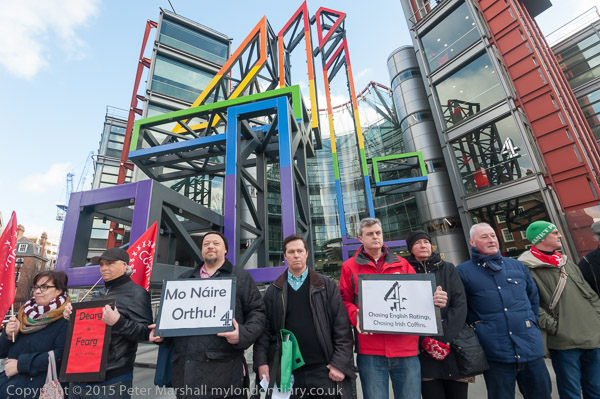
Outside Channel 4 around 50 people had come to protest against a proposed comedy series on the Irish famine, potato blight exploited in 1845-9 as a deliberate genocide by the English establishment, wiping out a million Irish, and forcing more into poverty, starvation and immigration.
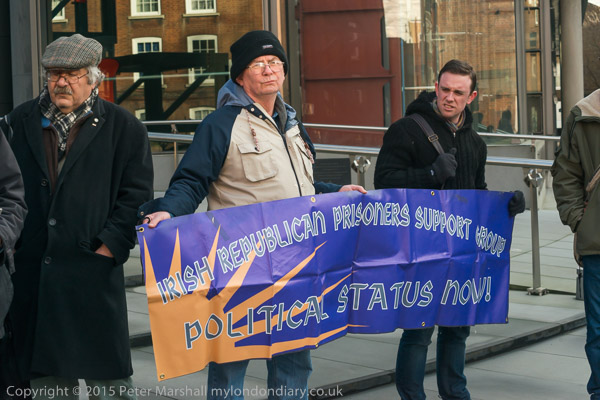
The Great Famine or Irish Potato Famine led to the deaths by starvation of around a million Irish people, and also during it and in the next few years to around two million leaving the country, many for America. Roughly one in eight of the country’s inhabitants starved to death, and about a quarter of them emigrated, said by Wikipedia to be “one of the greatest exoduses from a single island in history.”
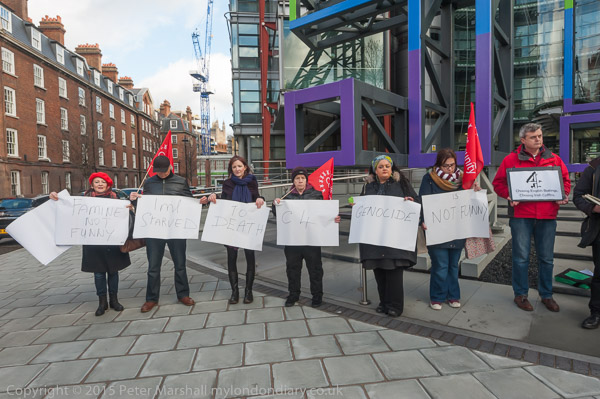
The UK government knew what was happening – and also knew that they could have avoided most of the deaths by simply stopping the export of large amounts of food from Ireland – as they had during previous times of famine in Ireland – but they decided not to do so. They even stopped ships carrying wheat from reaching the country. The interests of major landlords – mostly absentee landlords – were prioritised over the lives of poor Irish who were said to lack ‘moral fibre’ and some in England regarded the deaths as a ‘divine judgement’.
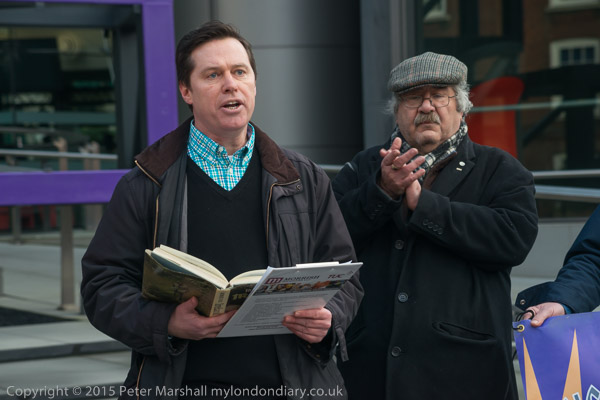
My account on My London Dairy lists some of the speakers at the even, including its
“organiser Austin Harney, Chair of CRAIC, (Campaign for the Rights and Actions of Irish Communities), Pat Reynolds of IBRG, (Irish in Britain Representation Group), Helen O’Connor of the Socialist Party, Peter Middleton of the Wolfe Tone Society (Sinn Fein), Zita Holbourne from BARAC, (Black Activists Rising Against the Cuts) and Irish traveller Phien O’Reachtign of PAAD.”
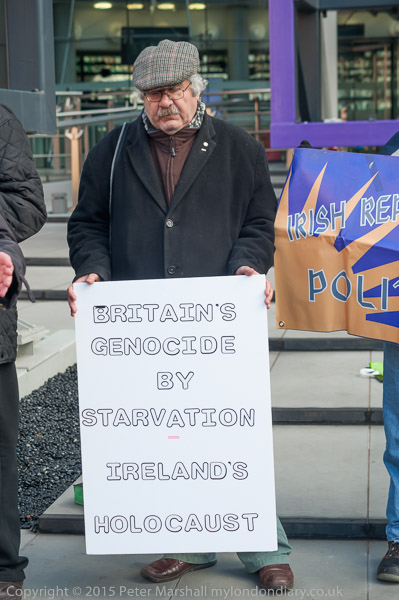
More pictures at Irish Famine is no laughing matter.
Flickr – Facebook – My London Diary – Hull Photos – Lea Valley – Paris
London’s Industrial Heritage – London Photos
All photographs on this page are copyright © Peter Marshall.
Contact me to buy prints or licence to reproduce.
